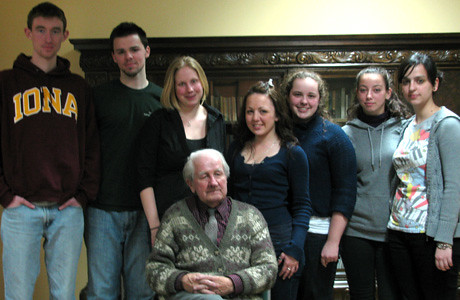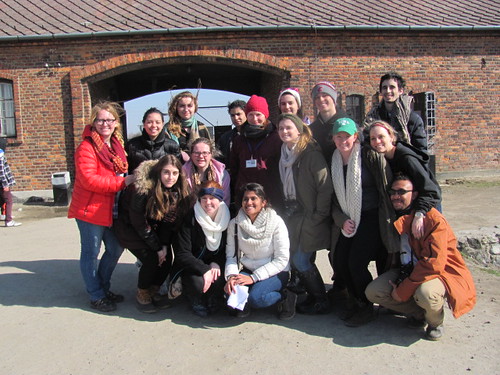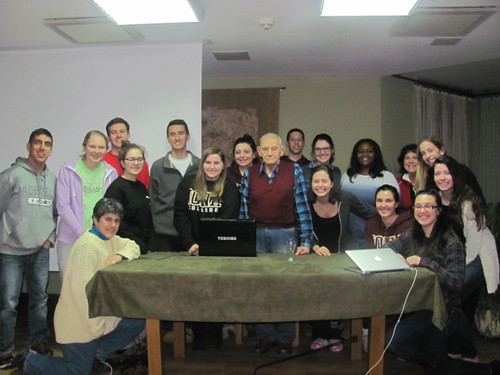“I swore never to be silent whenever and wherever human beings endure suffering and humiliation. We must take sides. Neutrality helps the oppressor, never the victim. Silence encourages the tormentor, never the tormented.” –Elie Wiesel
It has been almost 2 months since I have left New York to indulge myself in the Polish culture and increase my knowledge in Jewish-Christian relations. Thinking back to the flight from Amsterdam to Krakow, I remember feeling incredible nervous: what will this trip bring me? As we landed, I felt ready, ready to embark on the journey many people do not get the opportunity to. And for that, I felt lucky. We drove in separate buses to the Center and I had no idea what the week would bring. Fast forward 7 days later, being in those same buses, but with a completely different outlook on life. My thoughts on this bus ride and the flights following reflected on the innocent lives of 6 million people. 6 million. How could this happen? Who could do this? As Dr. Annamarie Orla-Bukowska mentioned, studying the Shoah only left me with more questions than answers.
As I saw my friends and family the weeks following our trip to Poland, I received the same questions, “How was Poland?” An answer to this question seemed almost impossible. I had two options: say it was good and move on, or educate others on the living memorial of the Shoah. I explained to many of them the tragedies I saw, the wonderful people I had met, and the effect the trip had on my own life. I could no longer be a bystander to the ignorant and hateful views of people around me. I could no longer sit quietly when I heard someone being mistreated. I have a voice that must be heard. The Shoah was real, it affected real people, and caused real pain and suffering on innocent lives. This is not something we shall forget, but something we shall remember indefinitely.
Dr. Annamaria Orla-Bukowska, a professor from the Institute of Sociology at the Jagiellonian University in Krakow, Poland, spoke at Iona College on April 16th for the “William H. Donat Shoah Commemoration Teaching the Holocaust Where It Happened” event. Although we had already traveled to Poland, this presentation taught me even more about my experience and studies in Jewish-Christian Relations. Born and raised in Chicago, Illinois, Dr. Annamaria Orla-Bukowska traveled to Poland to learn more about her Polish heritage and the tragedies that occurred under the Nazi Regime. As she became integrated in the Polish culture, she found herself with more questions than answers in her field of study. Eventually, she moved to Poland fulltime to fulfill her passion for the Holocaust and it’s living memorial. Dr. Annamarie Orla-Bukowska’s dedication to the memory of the Shoah is something we should all look up to as students in Jewish-Christian relations. Like she said during her speech, we must use the Holocaust as a lens to other issues that can occur in the world.

|
| Memorial site at the Plaszow labor camp in Krakow, Poland. |




















